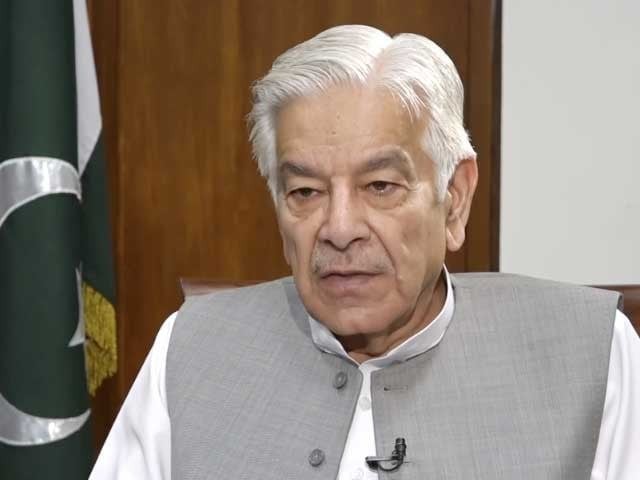
Defence Minister Khawaja Asif stated that under Operation Azm-e-Istehkam, the government could target terrorist hideouts across the border in Afghanistan.
In an interview with Voice of America (VoA) on Thursday, Asif explained that the decision for Operation Azm-e-Istehkam was not made hastily. However, he acknowledged a political environment where parties are reluctant to give space to government decisions.
He assured that any political parties’ concerns about the operation would be addressed, and the government would bring the matter to the assembly to answer questions and build trust among members.
Also read: Khawaja Asif slams US House call for probe into election
Asif dismissed the possibility of negotiations with the banned TTP, stating, “There is no ground for dialogue.” He questioned the success of the PTI government’s reintegration of 4,000 to 5,000 TTP militants, asking, “If that experiment was successful, let us know so we can follow suit.”
He claimed previous operations were successful, with the Pakistan Armed Forces being the main stakeholders then and now. However, he criticised successive civilian governments for failing to play their part post-operation.
Khawaja Asif expressed the desire to engage with the opposition and all political parties to ensure the success of Operation Azm-e-Istehkam, informing them of its contours. He noted that the cabinet had approved the operation, and discussions could take place in the assembly or an all-parties conference.
Also read: Khawaja Asif says PTI ‘siding’ with terrorists after party opposes ‘Azm-e-Istehkam’ op
He observed that the chief minister of Khyber-Pakhtunkhwa, Ali Amin Gandapur, had not opposed the operation at any stage. The decision was driven by economic difficulties and aimed at targeting TTP hideouts across the border because, as Asif stated, “Nothing is more important than the country’s integrity.”
Asif justified targeting terrorist sanctuaries in Afghanistan, arguing it does not violate international laws since terrorism was being exported to Pakistan from there. He blamed the 4,000 sleeper cell members brought back on Imran Khan’s orders for spreading unrest in Pakistan.

